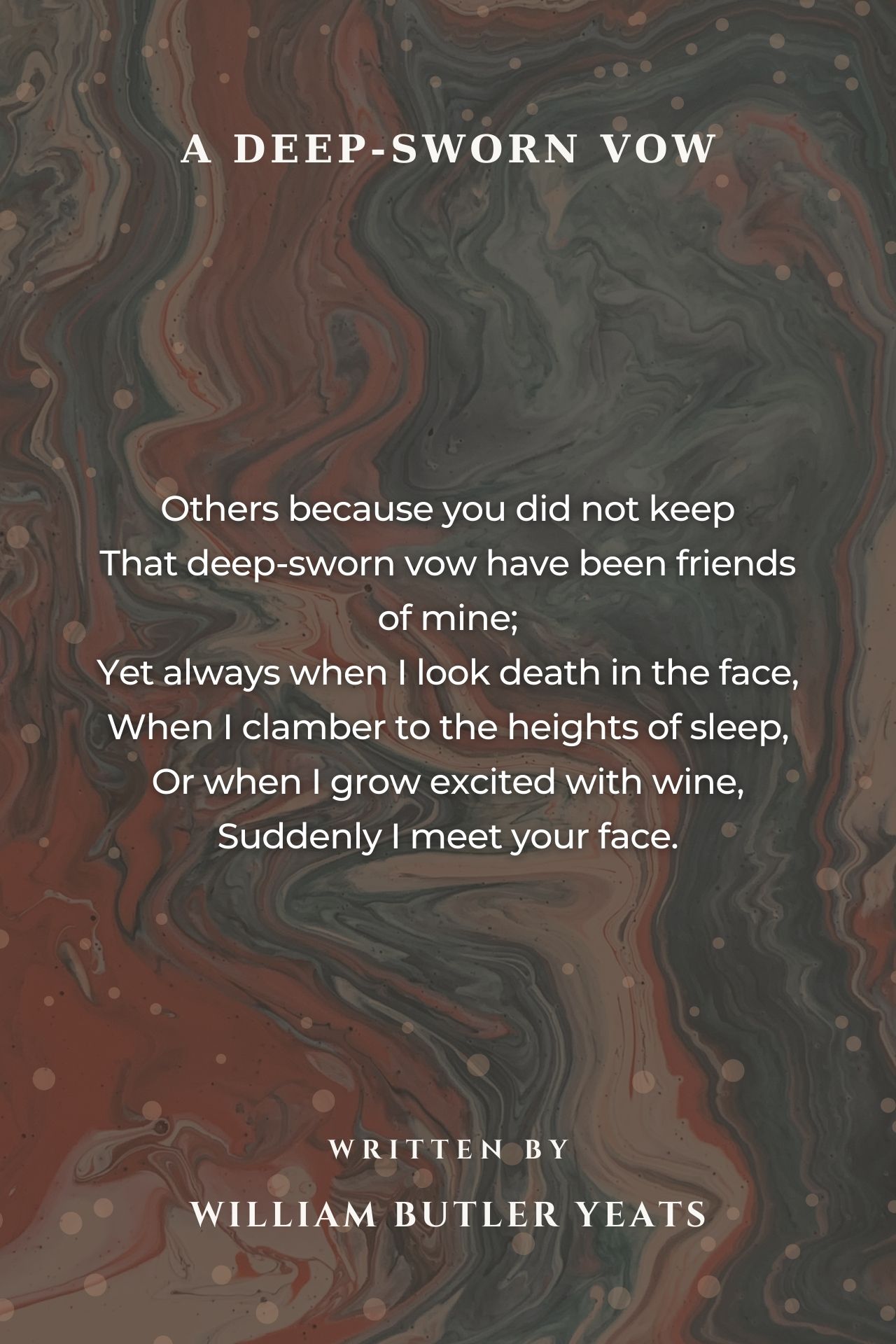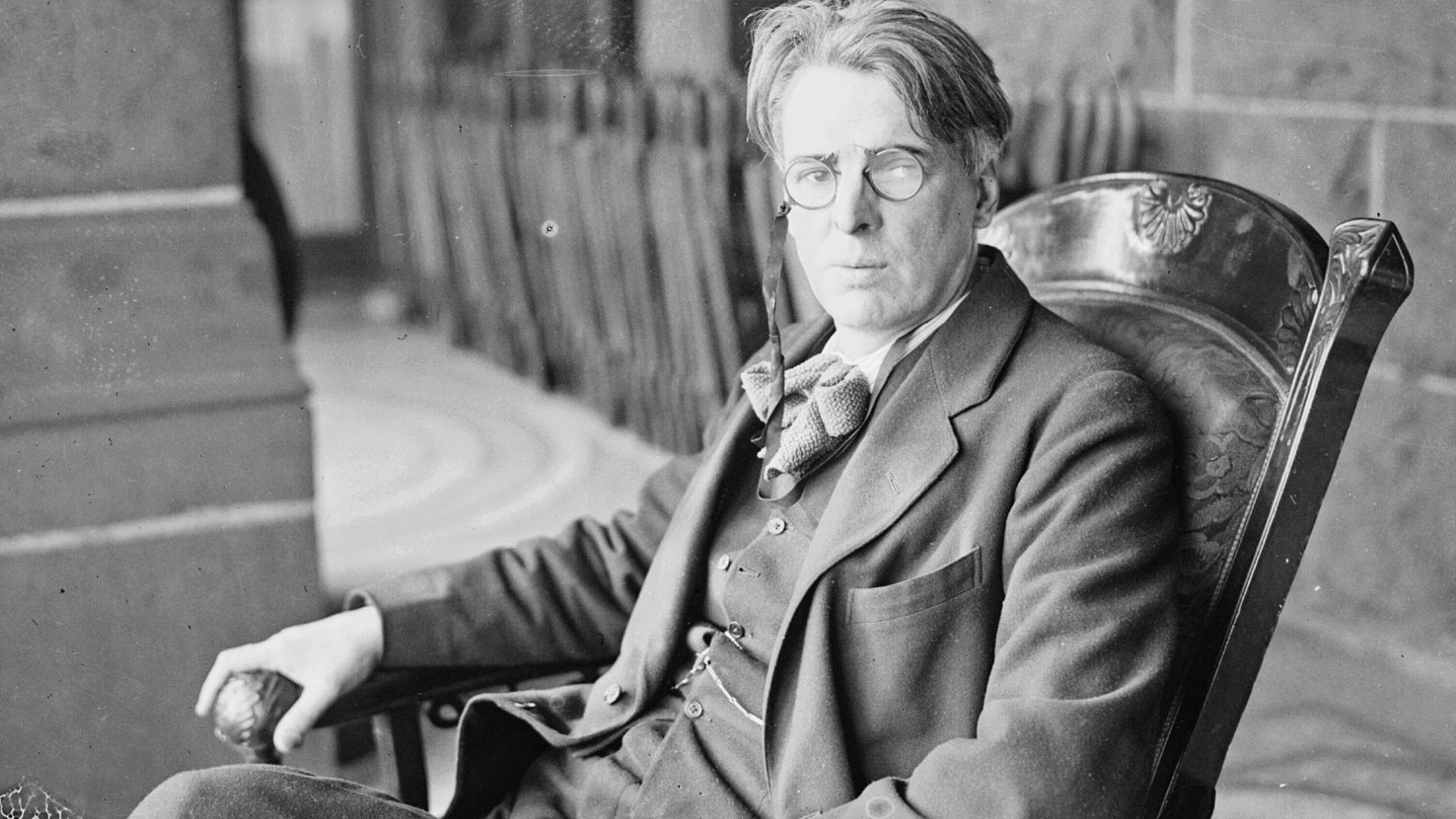A Deep-Sworn Vow Poem by William Butler Yeats
A Deep-Sworn Vow
Others because you did not keep
That deep-sworn vow have been friends of mine;
Yet always when I look death in the face,
When I clamber to the heights of sleep,
Or when I grow excited with wine,
Suddenly I meet your face.

It's obvious that Yeats is playing with punctuation. Add a comma after 'OTHERS' and 'VOW' and the true meaning becomes visible: ~ OTHERS, because you did not keep That deep-sworn vow, have been friends of mine; ~ Yeats is saying that he has had other lovers, only because of his wife's act of adultery, breaking their wedding vows. And yet, because of his deep love for her, he is constantly reminded of her throughout his life.
Despite the note below this lovely poem, it is about neither sleep, death, nor friend! Read it. It is like all truly great poems in that it is not entirely explainable, but I can say that it is about a depth of love and loss that cannot be assuaged. Yeats has had lovers since, but at all unguarded moments, he remembers his only great love-very likely his wife (the deep-sworn vow) who was unfaithful to him.
This poem is related to another one of Yeats called Speech After Long Silence. Together, they are book-ends for his youth and old age, and reflect his lifelong fascination with Maud Gonne. Without any biographical notes, they remain beautiful.
This is just a sample poem for the visionary Poet W B Yeats because after reading his -poems like Byzantium and Return to Byzantium poems, one will conclude so only!
Or when I grow excited with wine, Suddenly I meet your face......so touching. Beautiful poem. It is glad that this poem has been selected as the poem of the day.
This poem has not been translated into any other language yet.
I would like to translate this poem
Those familiar with Yeats biography know that this poem refers to Maud Gonne. In 1889, Yeats met Gonne, then a 23-year-old heiress and ardent Nationalist. Gonne was eighteen months younger than Yeats and later claimed she met the poet as a 'paint-stained art student.' Gonne had admired 'The Isle of Statues' and sought out his acquaintance. Yeats developed an obsessive infatuation with her beauty and outspoken manner, and she was to have a significant and lasting effect on his poetry and his life thereafter. In later years he admitted 'it seems to me that she [Gonne] brought into my life those days—for as yet I saw only what lay upon the surface—the middle of the tint, a sound as of a Burmese gong, an over-powering tumult that had yet many pleasant secondary notes.' Yeats' love initially remained unrequited, in part due to his reluctance to participate in her nationalist activism. His only other love affair during this period was with Olivia Shakespear, whom he had first met in 1896, and parted with one year later. In 1891, he visited Gonne in Ireland and proposed marriage, but was rejected. He later admitted that from that point 'the troubling of my life began'. Yeats proposed to Gonne three more times: in 1899,1900 and 1901. She refused each proposal, and in 1903, to his horror, married the Irish nationalist Major John MacBride.